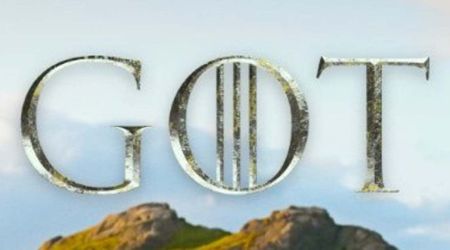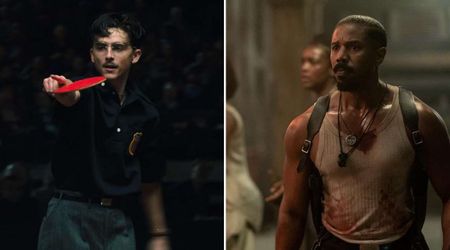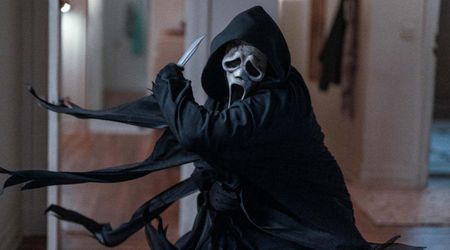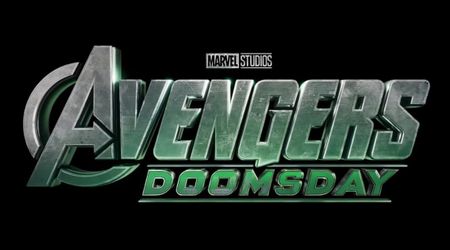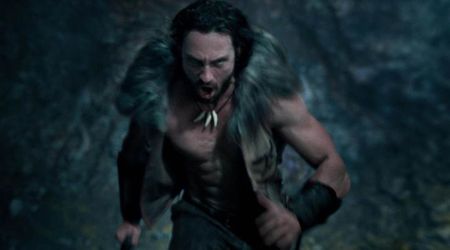'You People': Netflix hit criticized as 'horribly damaging' for branding Jewish people 'White & racist'

LOS ANGELES, CALIFORNIA: The popular Netflix comedy 'You People' has been criticized for perpetuating stereotypes about Jews as being "White, privileged, and racist," which has been called "horribly damaging" to Jews. After being released about two weeks ago, the new film starring Kenya Barris and Jonah Hill has garnered over 55 million viewing hours and is presently occupying the top slot on Netflix.
The film's central plot is about a Jewish man (Jonah Hill) who falls in love with a black Muslim woman named Amira Mohammed (Lauren London). As their respective families respond to the cultural differences, their relationship is put to the test. The movie tries to tackle some difficult topics, including racism, with a mixture of romance and comedy. However, it has been dubbed "damaging" by some who feel that it relies too much on stereotypes and is anti-Semitic.
RELATED ARTICLES
Where was Netflix rom-com 'You People' starring Jonah Hill filmed?
When will 'Freeridge' premiere on Netflix? Here's everything about the teen comedy-drama series
'It's a Jews Don't Count fest'
The movie has received mixed reviews. It has also sparked outrage from some viewers, including U.S.-born British comedian David Baddiel. Baddiel, the author of 'Jews Don't Count', tweeted last week saying, "It’s a Jews Don’t Count fest. The Jewish family are positioned as White, privileged and racist. The black family just have a stern dad. At the end there’s much Jewish apologising for racism. None for antisemitism. That word never appears."
It’s a Jews Don’t Count fest. The Jewish family are positioned as white, privileged and racist. The black family just have a stern dad. At the end there’s much Jewish apologising for racism. None for antisemitism. That word never appears.
— David Baddiel (@Baddiel) January 29, 2023
The movie has a long variety of representations that, at worst, are outright antisemitic, according to Allison Josephs, the founder and executive director of the nonprofit group 'Jew in the City', which seeks to clarify misconceptions about religious Jews. "I've spoken with so many Jewish people who are really, really upset by this movie," she told Newsweek. "I think one of the biggest frustrations for me, watching the movie was not being able to comeback to some of the outrageous claims that were made. As the viewer, you're just subjected to listening to the conversation. There were so many falsehoods, or so many claims put out there without any challenge. And so now that becomes just part of what people may accept to be true. It's an erasure of Jewish history and like an invalidation of all that we've been through and all that we continue to go through. It was a really painful movie to watch."
She said the movie took "cheap" shots at the Holocaust and suggested that Jewish people were successful through their large communities of connections and came from generations of wealth. "In the trailer, they were already making Holocaust jokes and kind of minimizing the Holocaust. So that's not good when your trailer includes cheap and really offensive Holocaust humor," she said. "I couldn't even imagine how bad it would be. The things that they did here are different than other forms of antisemitism that I've seen in the past."
'Are you trying to compare the Holocaust to slavery?'
In the movie, Hill's progressive parents (Julia Louis-Dreyfus and David Duchovny) make a joke about Jews being the "OG slaves." "We were technically OG slaves," Duchovny's character Arnold told Akbar (Eddie Murphy), Amira's father. Akbar replied, "Are you trying to compare the Holocaust to slavery?" "Our people came here with nothing like everybody else," Dreyfus' character Shelley countered.
"[In the film] they do a comparison of slavery versus the Holocaust. It certainly shouldn't be a competition, but the pain of the Holocaust also shouldn't be downplayed as not mattering or being insignificant," Josephs said. She also mentioned another "completely insane" section of the movie when it is implied that Jews made significant profits from slavery in the United States. "It completely erases the fact that most Jews came to this country fleeing systemic Jew hatred, whether it was Cossacks or Nazis or a systemic exile from the Arab world in the mid-1940s," she said. "There are very few Jews that came to the U.S. in positions of power."
The movie's conclusion revisits the subject of slavery when "the Jewish mother literally apologizes on behalf of all White people and Jewish people to Black people," Josephs said. "For Jewish people who both have experienced antisemitism and presently grow up experiencing antisemitism, that we come from people who experienced antisemitism, to lump us in with White people—and to say that, somehow, Jewish people need to apologize to Black people, that we did something to them—it's absolutely insane."
This article contains remarks made on the Internet by individual people and organizations. MEAWW cannot confirm them independently and does not support claims or opinions being made online.

